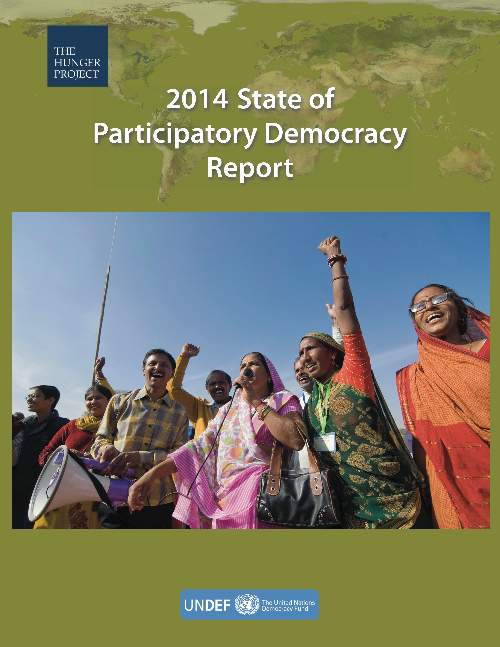
From 2012-2014, the United Nations Democracy Fund supported The Hunger Project to build a community of practice on Participatory Local Democracy. This community was mobilized to comprise dozens of local pro-democracy civil society groups in more than 70 countries.
Following a series of regional meetings in Africa, Asia and Latin America in 2012, a small secretariat team in Washington DC developed a multidimensional Participatory Local Democracy Index and solicited input from all participating countries to issue State of Participatory Local Democracy Reports during the 2013 and 2014 UN General Assembly.
UNDEF does not “renew” grants – it intends to make a catalytic investment, and with this project they succeeded. It led directly to the launch of the Movement for Community-led Development alongside the launch of the Sustainable Development Goals in 2015.
Posts on this site
-
Introducing the RDLG Bibliographic Database

We are pleased to announce that the Rural Decentralization and Local Government (RDLG) Database, with its 1600 bibliographic entries – is now part of this website. The Royal Tropical Institute in the Netherlands has, for many years, supported its development and operation within its KIT Information and Library Services. When the services closed in August 2013 due…
-
Analyzing the performance of alternative institutional arrangements for sustaining rural infrastructure in developing countries
Abstract: This paper, which draws on principles from the new institutional economics and institutional analysis, argues that a principal underlying cause of the lack of sustained rural infrastructure investments in developing countries is the set or sets of perverse incentives. Author(s): Ostrom, Elinor; Schroeder, Larry; Wynne, Susan Source(s): , Journal of public administration, research &…
-
Decentralization in developing countries : a review of recent experience
Abstract: Decentralization – whether as deconcentration, delegation, or devolution – has had mixed results. The right scale, sufficient time, and adequate training determine success. The process must be accompanied by a shift in the orientation of central bureaucracy from control to facilitation and support. Author(s): Rondinelli, Dennis August; Nellis, John R.; Cheema, G. Shabbir Source(s):…
